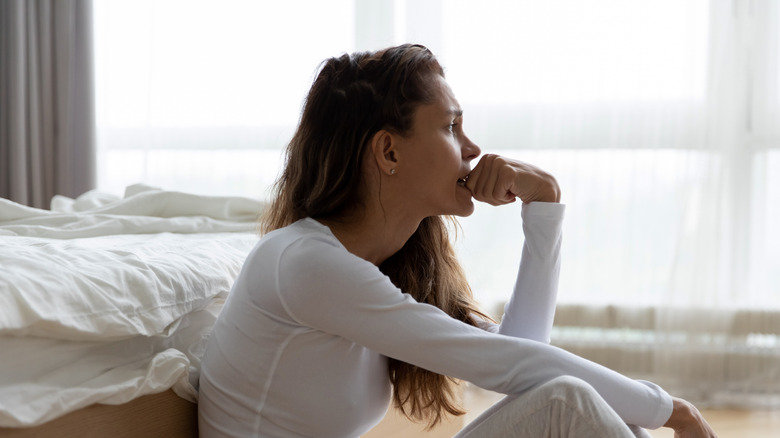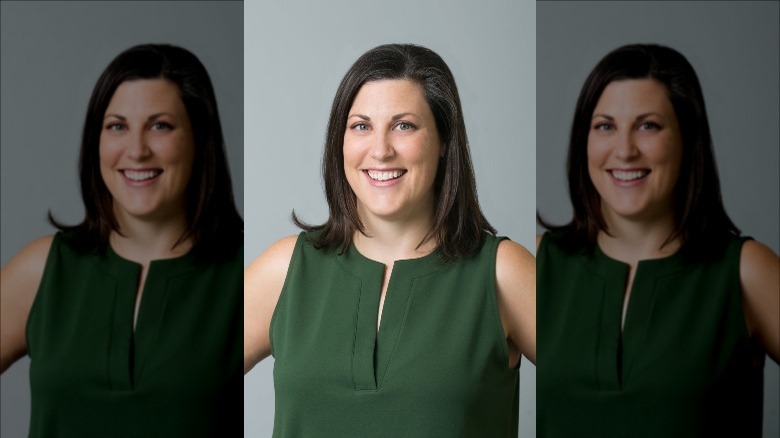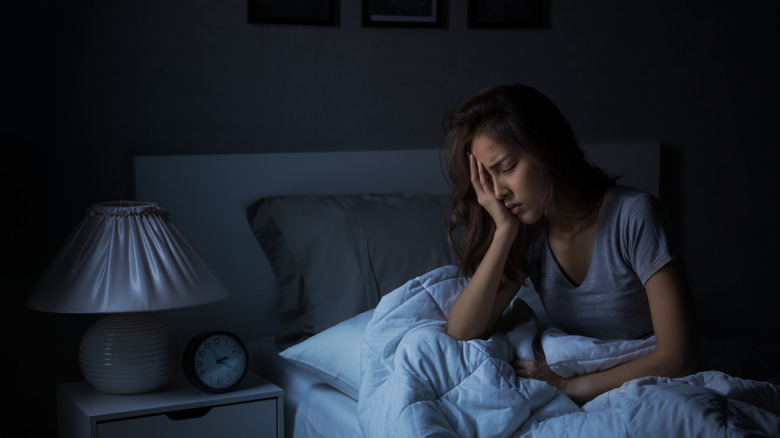Therapist Sarah Harte Explains How Overturning Roe V. Wade Will Impact Marginalized Communities - Exclusive
The Supreme Court's recent decision in Dobbs v. Jackson Women's Health Organization overturned the court's previous ruling on Roe v. Wade. Roe v. Wade protected the right to legal abortions on a federal level, but now, access to abortion will be determined at a state level. Multiple states have already chosen to ban or limit access to abortions after the July 24 ruling.
Prohibiting access to abortion has been shown to increase mental health risks for many, particularly young women, those in low-income communities, and victims of domestic violence. Sarah Harte, LICSW, gave an exclusive interview with Health Digest to discuss those mental health concerns. Harte is the director of The Dorm, a full-service treatment community for patients ages 18-35. Her expertise in mental health and working with young people gives Harte a valuable perspective on the impact of overturning Roe v. Wade. During her interview, Harte shared research and thoughts regarding which communities will experience the most adverse effects of the court's ruling.
How prohibiting abortions may harm victims of domestic violence
The decision to overturn Roe v. Wade will impact many communities, but one group likely to be further harmed is those experiencing domestic violence and rape. "People who are victims of sexual violence or other forms of abuse have compounding negative influences that threaten their physical, emotional, and financial wellbeing," Sarah Harte explained. "Adding an unwanted pregnancy to an already horrific experience further hinders their ability to break away from an abuser and begin to heal."
Beyond trapping the victim in their abusive circumstance, carrying an unwanted pregnancy brings a child into that unsafe circumstance. "The lack of access to abortion in these circumstances also introduces another generation that could bear witness to violence and all of the compounding negative effects that violence creates in people's lives," Harte said.
If you or anyone you know has been a victim of sexual assault, help is available. Visit the Rape, Abuse & Incest National Network website or contact RAINN's National Helpline at 1-800-656-HOPE (4673).
If you or someone you know is dealing with domestic abuse, you can call the National Domestic Violence Hotline at 1−800−799−7233. You can also find more information, resources, and support at their website.
How marginalized communities will be harmed by this decision
Sarah Harte pointed out that abortion is not only a women's issue. "All genders, relationships, and types of families are impacted by the lack of choice to terminate a pregnancy," she said. However, for low-income and other marginalized communities, that impact can be more harmful. The therapist cited The Guttmacher Institute, which found that "the most severe ramifications from this decision occur in rural communities and in communities with lower incomes, which are disproportionately communities of color."
Another group likely to be harmed by the overturning of Roe v. Wade is teens and young adults with unwanted pregnancies. According to Harte, limiting access to abortion significantly impacts young people because "their lack of independent access to health care, personal finances, and accurate health information" means that they don't have as many options as others in that circumstance.
For more information on The Dorm and its mental health treatment services, please visit thedorm.com.



